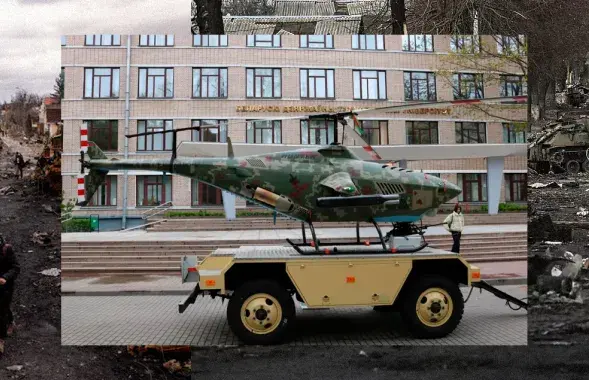Lawmakers fail to explain why they abolished benefits for former Nazi victims
In 2006, 55500 former prisoners at the German concentration camps still remained in Belarus. This year, the number has continued to drop. Many of the victims do not enjoy any benefits at all. They simply live in villages and do not travel even to hospitals.
The European Radio for Belarus attempted to find an answer to the question what is the advantage for the state if it removes benefits for these people. Why on earth should the government cancel the benefits for a small number of former prisoners who need these preferences?
The previous benefits would not help much to Anastasija Fiodarauna Ihnatovich, a former worker at a German concentration camp. Yet, it was at least some assistance, besides the compensation money paid by the German and Austrian governments. The woman’s daughter Nina narrates the story of her mother:
“The Germans came, gathered all the villagers and forced them to a concentration camp near Azarychy. They would seal off this swamp with barbered wire and mines. They put the people there without food and water. They would bring bread three or four days later. The Germans would simply throw bread from a truck, thus forcing stampede. Many had their faces bruised and teeth knocked out.”
What is the logic behind the MP’s approval of a legislation that has canceled benefits for the victims of concentration camps, yet leaving the benefits for war veterans? Valery Lektarau, a member of the Labor Social Security Committee at the House of Representatives, described the amendments regarding the former concentration camp prisoners as very logical.
“I know a prisoner who doesn’t even know in which concentration camp he was. But he used to get certain aid and all the rest…If people have less money than 60 percent of a minimum wage, they will be provided targeted assistance in the form of money,” Lektarau said.
The rest of the lawmakers simply refused to comment on their decision. MP Hanna Burava told us for example the following:
“How can I explain to you if I serve on the Housing Policy Committee? There is a relevant committee, so you’d better call there. It is considered not be ethical if a member from a different committee comments on legislation drafted by another committee.”
The European Radio for Belarus called Siargej Kamianetski, the Labor and Social Security Committee chairman. But, again he was the wrong contact.
“It does not apply to me. You need to pose questions to the authors, i.e. the Council of Ministers,” he said.
Some legislators appear to have heard for the first time from the European Radio for Belarus that the former prisoners of concentration camps were stripped of their benefits. Jaugen Kaspiarovich, an official from the Ministry of Labor, commented in a very laconic way on this matter.
“Yes, apparently, they have been cancelled,” he said.
The lawmakers failed to explain to our radio why the benefits for the former prisoners of concentration camps were abolished, just pushing our correspondents from one to another. The Ministry of Labor advised us to contact MP Siargej Kamianetski, who chairs the Labor and Social Security Committee at the parliament. The latter in his turn would send us to other authorities.
The impression is that the House of Representatives did not decide on anything. The former speaker of parliament Mechyslau Gryb shares the same impression.
“This legislation was lobbied by the president. He asked MPs to pass this draft as a priority and without any questions. This means that there is no real parliament in this country,” he said.
Photo by jhistory.nfurman.com

















